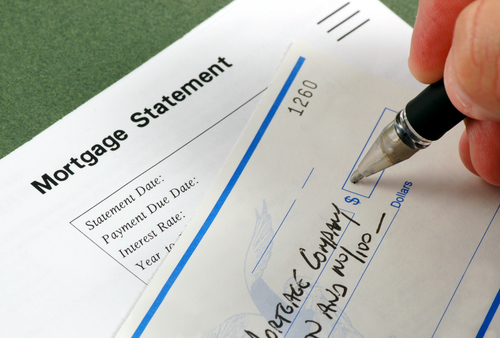Compare Risks to Decide If You Should Accelerate Your Mortgage
Homeowners have a variety of reasons for accelerating their mortgage payments. Some people try to correlate their mortgage pay off with retirement. Other homeowners want to reduce the amount of interest they pay on the loan and reinvest the money saved. In recent years, uncertain economic conditions have motivated some homeowners to want to own their homes free and clear to give them peace of mind.
Six Steps to Accelerating Your Mortgage:
The process of accelerating the mortgage may save some homeowners a sizable amount of money. Homeowners have a few approaches they can use to step up payments.
Following are six general steps you can take to accelerate your mortgage.
- Find out what your mortgage interest rate.
- Compare your mortgage interest rate to the offset risks.
- Verify if you have a prepayment clause in your mortgage. If you have a government-insured loan, the lender cannot have a prepayment penalty.
- Decide on what additional amount you can afford each month.
- Contact lender to discuss accelerating your mortgage. Pay the mortgage biweekly, make fixed payments plus your regular monthly payment or send a lump sum payment.
- Confirm your prepayment request to the lender in writing.
A common strategy for accelerating a mortgage is to obtain a 30-year fixed rate mortgage, but make scheduled payments for a 15-year fixed-rate mortgage. You can reduce the amount of interest you pay over time without the obligation of making extra monthly mortgage payments.
Before deciding to pay off a mortgage, evaluate the advantages and disadvantages of paying off your mortgage compared to offsetting risks, such as opportunity cost, equity at risk and liquidity loss.
Evaluate Opportunity Cost
Do you have another investment, such as retirement plan or college savings account to invest the money? If you accelerate repayment of the mortgage, you may save some money, but at what cost. You might be able to invest the money elsewhere and earn a higher return on investment, than what you save by pre-paying the home mortgage.
Compare the tax deductibility of the mortgage interest rate to the potential investment earning minus taxes. The IRS tax some earnings on investment at a lower capital gains tax rate compared to the personal tax rate.
Consider Equity at Risk
Home homes prices have started to stabilized, increasing an average of 1.3 percent in April, according to the latest S&P Case-Shiller Home Price Index. The index measures home values across 20 metropolitan areas. From the peak reached in July 2006 through early 2012, home prices declined an average of 34% in the U.S.
A reversal in the economy can lead to job loss and send home prices plummeting again.
Consider the risk of accelerating your mortgage and accumulating equity faster, but subsequently suffering a financial setback. You could lose your home to foreclosure as well as the money/equity from the mortgage acceleration.
Liquidity and Cash Flow
Determine put the cash for extra mortgage payments to better use by enhancing your cash position. Maybe you have put off accumulating the recommended six-month salary for your household emergency fund. Perhaps you plan a major purchase, home improvement project or other large expense that will require a cash outlay. You will not have to borrow some or all of the funds or reduce costs of a loan by borrowing a smaller amount.
Determine what the pros and cons are of paying your mortgage off early. Many homeowners who purchased or refinanced their homes at record low interest rates may find they are better off financial investing their money elsewhere for a better return.







